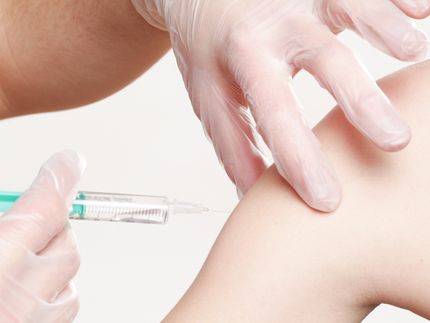World's largest malaria vaccine trial now underway in 7 African countries
Advertisement
A pivotal efficacy trial of RTS,S, a clinically advanced malaria vaccine candidate, is now underway in seven African countries: Burkina Faso, Gabon, Ghana, Kenya, Malawi, Mozambique and Tanzania. The trial, which is expected to involve up to 16,000 children, is on schedule, with more than 5,000 children already enrolled, researchers announced at the 5th Multilateral Initiative on Malaria Pan-African Malaria Conference.
Developing a vaccine against malaria, a scientific challenge for decades, is critical to defeating the disease. A vaccine would complement existing interventions, such as bed nets and effective drug therapies. GlaxoSmithKline Biologicals' (GSK Bio) RTS,S is the first malaria vaccine candidate to demonstrate significant efficacy during early development to warrant Phase III testing. It is the leading vaccine candidate in the global effort by the PATH Malaria Vaccine Initiative (MVI) to develop a malaria vaccine.
"This is a tremendous moment in the fight against malaria and the culmination of more than two decades of research, including 10 years of clinical trials in Africa," said Dr. Joe Cohen, co-inventor of RTS,S and Vice President of R&D, Vaccines for Emerging Diseases and HIV, at GSK Biologicals. "The Phase III trial is a huge undertaking that depends on effective coordination between researchers, regulators, families and communities. Everyone involved has invested significant energy and resources to pave the way for what could become the world's first malaria vaccine."
Recent Phase II studies showed that RTS,S reduced clinical episodes of malaria by 53 percent over an eight-month follow-up period. Findings from a Phase II trial initiated in 2002 and conducted with more than 2,000 children in southern Mozambique, published in the medical journal The Lancet in 2004 and 2005, showed that RTS,S was efficacious for at least 18 months in reducing clinical malaria by 35 percent, and severe malaria by 49 percent. , In addition, RTS,S was shown to have a promising safety and tolerability profile when used alongside the World Health Organization's (WHO) standard infant vaccines.
The Phase III trial The Phase III trial will evaluate the vaccine's efficacy in two groups of children. One group, aged 6 to 12 weeks, will be vaccinated as part of their regular schedule of infant immunizations; the second group includes children aged 5 to 17 months. The vaccine profile is intended primarily for infants, as they and children under the age of five are the most vulnerable to malaria.




















































